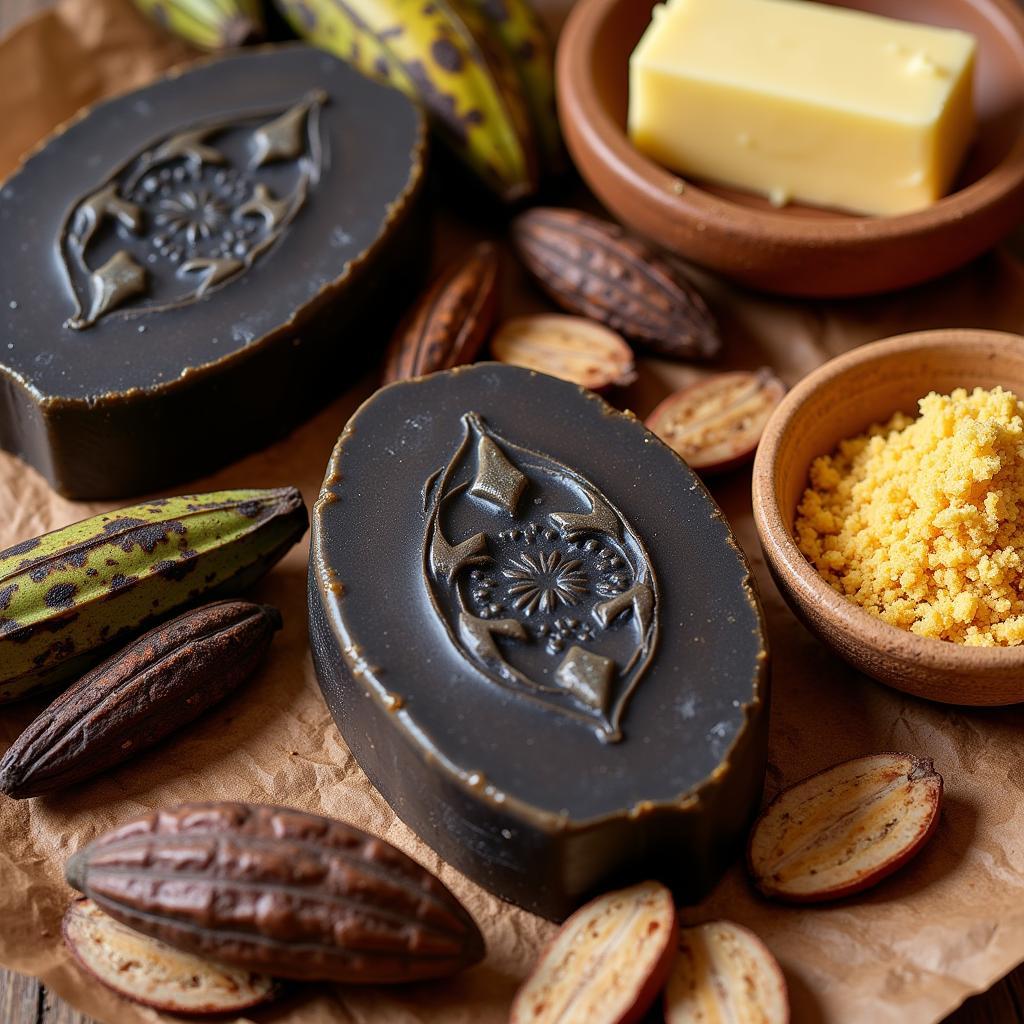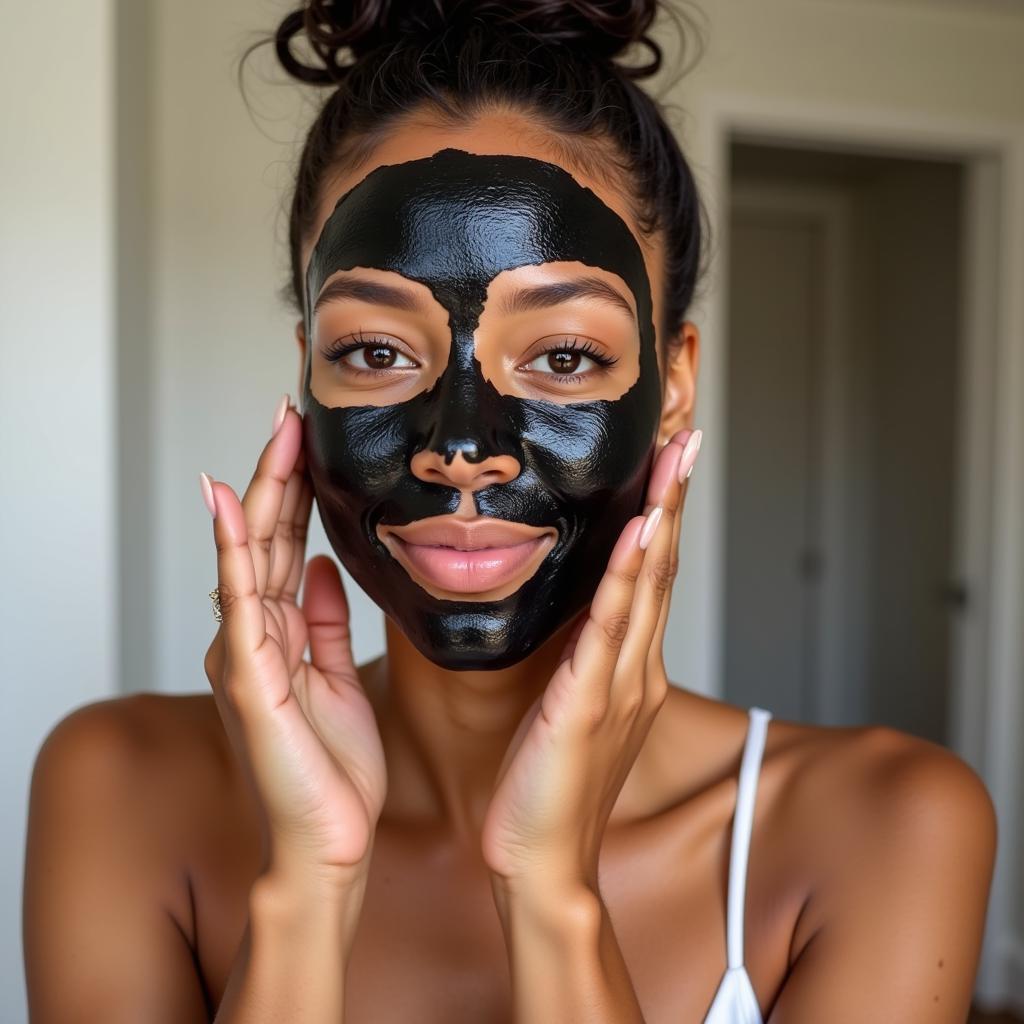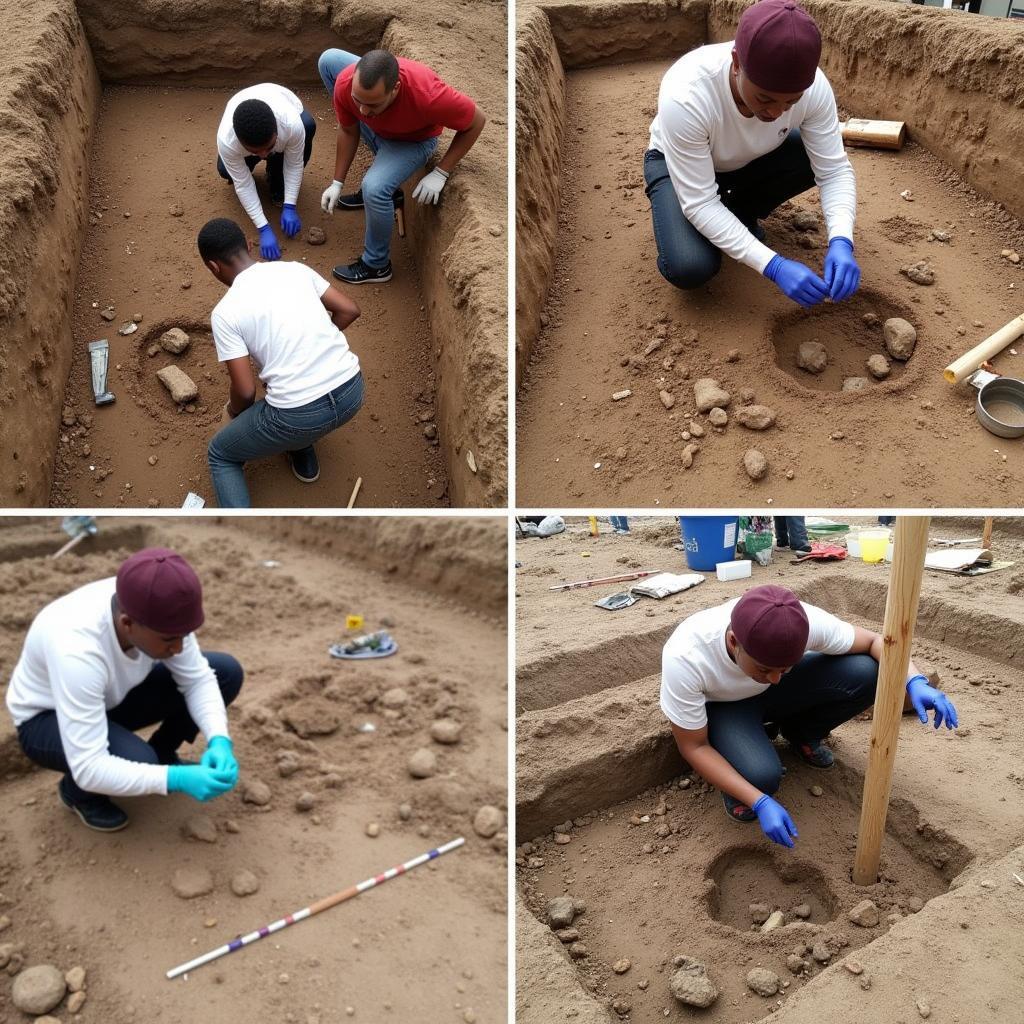African Black Soap Clarifying Facial Mask: Unveiling the Ancient Beauty Secret
African black soap, a centuries-old beauty staple, has taken the skincare world by storm. This all-natural wonder, renowned for its clarifying and purifying properties, is a game-changer for achieving a radiant and blemish-free complexion. In this comprehensive guide, we’ll delve into the transformative power of African black soap as a clarifying facial mask, uncovering its origins, benefits, and how to incorporate it into your skincare routine for a healthy, natural glow.
Unearthing the Origins of African Black Soap
African black soap’s roots lie deep within West Africa, where its creation is a cherished tradition passed down through generations. Unlike commercially produced soaps, authentic African black soap is handcrafted using ancient techniques and locally sourced ingredients. While recipes may vary, the core components typically include:
- Plantain Skins: Rich in vitamins A and E, plantain skins are known for their moisturizing and soothing properties.
- Cocoa Pods: Packed with antioxidants, cocoa pods help protect the skin from environmental damage and promote elasticity.
- Shea Butter: A deeply nourishing ingredient, shea butter provides intense hydration and helps fade blemishes.
- Palm Oil: Adds moisture and creates a luxurious lather.
- Water and Wood Ash: Wood ash from sustainably harvested trees, such as palm and cocoa trees, is roasted and added to the soap mixture, lending its natural cleansing and exfoliating properties.
 Traditional African Black Soap Ingredients
Traditional African Black Soap Ingredients
The Science Behind African Black Soap’s Clarifying Power
African black soap’s efficacy as a clarifying facial mask lies in its unique composition and the synergistic action of its natural ingredients.
- Deep Cleansing: The soap’s natural saponins, derived from the plantain skins and cocoa pods, act as gentle yet effective cleansing agents. They lift dirt, oil, and impurities from the pores without stripping the skin of its natural oils.
- Gentle Exfoliation: Finely ground particles within the soap provide gentle exfoliation, removing dead skin cells and promoting cell turnover for a smoother, brighter complexion.
- Antibacterial Action: The wood ash in African black soap possesses natural antibacterial and antifungal properties, helping to combat acne-causing bacteria and reduce inflammation.
Unveiling the Benefits of African Black Soap for Your Skin
Incorporating an African Black Soap Clarifying Facial Mask into your skincare routine can yield a plethora of benefits:
- Combats Acne and Breakouts: The soap’s antibacterial and anti-inflammatory properties make it a powerful ally in the fight against acne. It helps unclog pores, reduce excess oil, and soothe irritated skin.
- Fades Blemishes and Hyperpigmentation: African black soap can help diminish the appearance of acne scars, dark spots, and hyperpigmentation, revealing a more even skin tone.
- Balances Oil Production: Regular use can help regulate sebum production, preventing clogged pores and breakouts.
- Soothes Skin Conditions: Its gentle nature makes it suitable for sensitive skin and those with conditions like eczema and psoriasis.
- Promotes a Healthy Glow: By removing dead skin cells and impurities, African black soap unveils naturally radiant and healthy skin.
Crafting Your Own African Black Soap Clarifying Facial Mask
Here’s a simple yet effective DIY facial mask recipe:
Ingredients:
- 1 tablespoon of raw, unrefined African black soap (grated or crumbled)
- 1 tablespoon of warm water or herbal tea (green tea or chamomile)
- Optional additions:
- 1/2 teaspoon of raw honey (for added hydration and antibacterial benefits)
- 1/4 teaspoon of turmeric powder (for its anti-inflammatory and brightening properties)
Instructions:
- In a small bowl, combine the grated or crumbled African black soap with the warm water or herbal tea.
- Mix well until a smooth paste forms. You can adjust the consistency by adding more liquid if needed.
- If desired, incorporate the optional honey or turmeric powder.
- Apply the mask evenly to clean, dry skin, avoiding the delicate eye area.
- Leave the mask on for 10-15 minutes, allowing it to work its magic.
- Rinse thoroughly with lukewarm water and pat your skin dry with a soft towel.
- Follow with your favorite toner and moisturizer.
 Applying African Black Soap Facial Mask
Applying African Black Soap Facial Mask
Expert Insights: Embracing the Power of Tradition
“For centuries, African black soap has been a cornerstone of skincare rituals across the continent,” explains Abena Owusu, a renowned Ghanaian herbalist and skincare expert. “Its power lies in its simplicity and the purity of its ingredients. By harnessing the wisdom of traditional practices, we can achieve true skin wellness.”
Frequently Asked Questions About African Black Soap Facial Masks
1. Can I use African black soap daily as a facial mask?
While African black soap is generally gentle, using it as a mask daily may be too drying for some skin types. It’s best to start with 1-2 times per week and adjust the frequency based on your skin’s response.
2. How long does it take to see results with an African black soap facial mask?
Consistency is key! You may notice improvements in your skin’s clarity and texture within a few weeks of regular use.
3. Where can I find authentic African black soap?
Look for raw, unrefined African black soap from reputable sources, such as African-owned businesses or specialty stores that prioritize ethical sourcing and fair trade practices.
Embark on Your Journey to Radiant Skin with African Black Soap
African black soap, a testament to the power of natural ingredients, offers a transformative approach to skincare. By incorporating an African black soap clarifying facial mask into your routine, you can experience the time-honored benefits of this ancient beauty secret, revealing a healthier, more radiant you.
